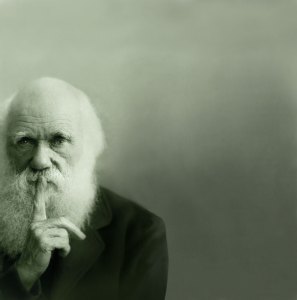by Mark Cwik, leader of our 2020 Toronto Pursuits seminar The Great (R)evolution: Darwin’s On the Origin of Species
Up on first reading Charles Darwin’s On the Origin of Species, the great 19th-century biologist Thomas Henry Huxley—later to be known as “Darwin’s Bulldog”—is reported to have told friends, “How extremely stupid not to have thought of that!”
on first reading Charles Darwin’s On the Origin of Species, the great 19th-century biologist Thomas Henry Huxley—later to be known as “Darwin’s Bulldog”—is reported to have told friends, “How extremely stupid not to have thought of that!”
Huxley’s quote captures the essence of why I love to read the Origin. What I hear Huxley saying is that Darwin was able to look at the world and see what others couldn’t. Once he’d shown them what he saw, they wondered why they hadn’t seen it all along.
Darwin’s breakthrough did not, of course, consist of his “discovering” evolution. By the mid-1900s, a century’s worth of advances in biology, embryology, taxonomy and geology had led a good part of the scientific world to the view that species were not fixed entities—that there was some form of evolution, or, in Darwin’s language, ‘transmutation’ of species.
What was missing was a mechanism that explains how and under what circumstances species are subject to change. And, we know, Darwin was not alone in developing a theory to explain how species evolve. The story of the parallel discoveries of natural selection by Darwin and by Alfred Russel Wallace is one of the most remarkable in the history of science.
But it is Darwin’s book, On the Origin of Species, that made the difference. Most of us assume we know what it says. Almost all of us will have encountered a presentation of Darwin’s theory in a biology textbook or lecture. Some of us, if pressed, might even be able to recall its principle points. But very few people have actually read Darwin’s presentation in the Origin. We assume that knowing the outlines of the theory of natural selection is enough. But we lose something important if we don’t also pay attention to the particular way that Darwin reaches his conclusions—the evidence he collects, the arguments he makes.
Darwin’s theory of natural selection is quite simple in formulation. Darwin himself presents the core of it in just a couple of sentences at the beginning of the Origin:
“As many more individuals of each species are born than can possibly survive; and as, consequently, there is a frequently recurring struggle for existence; it follows that any being, if it vary however slightly in any manner profitable to itself, under the complex and sometimes varying conditions of life, will have a better chance of surviving, and thus be naturally selected. From the strong principle of inheritance, any selected variety will tend to propagate its new and modified form.”
In the chapters that follow, Darwin meticulously marshals all the evidence he can gather to build a case for natural selection as the primary mechanism driving the differentiation of life on earth.
And it’s so much fun to watch a fine mind at work! The Origin of Species presents a methodical argument for the theory of natural selection; and as we read, we can catch a glimpse past the finished text to see how Darwin first worked the problem through for himself. The sheer pleasure of following along as Darwin builds his case is more than enough reason for me to read and re-read the Origin.
But there is something more important at work here. Darwin’s text provides us an example of the process of scientific reasoning at work. It is particularly instructive in an era when the scientific approach to knowing the world and its methods for claiming knowledge have become the object of political and social battles. Darwin is attempting to explain a phenomenon—the evolution of species—that he cannot directly observe or recreate by experiment. The time scales required are too vast, and the degrees of change too small for him to see evolution in action. He can only bring together various pieces of evidence, from differing fields of study, and build an argument for what he believes the explanation must be.
Throughout the week of our Toronto Pursuits seminar The Great (R)evolution: Darwin’s On the Origin of Species, we’ll be following Darwin’s process of argument-building and we’ll be exploring what constitutes evidence, how much we need, and when we can claim to have enough knowledge to act. I hope you’ll join us on the journey!
— Mark


